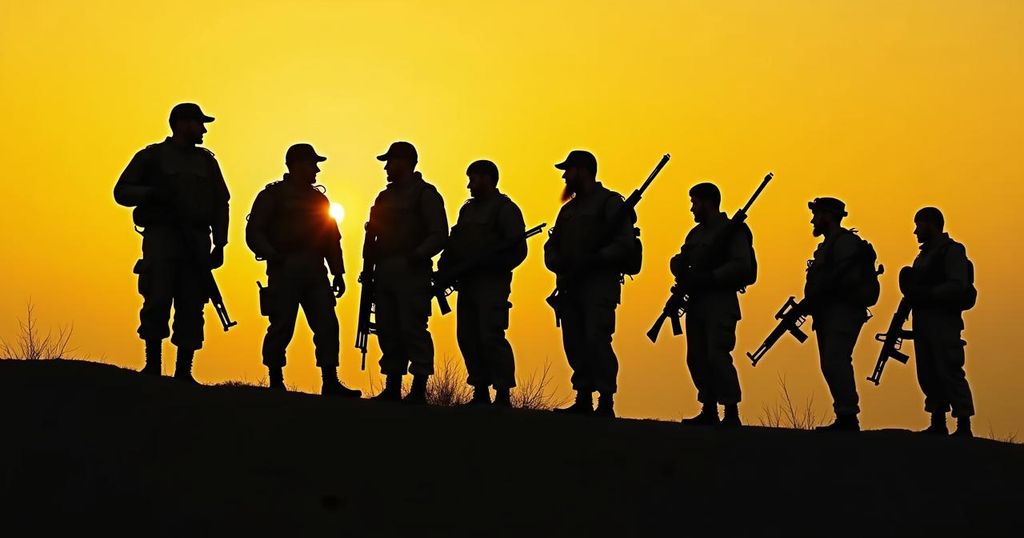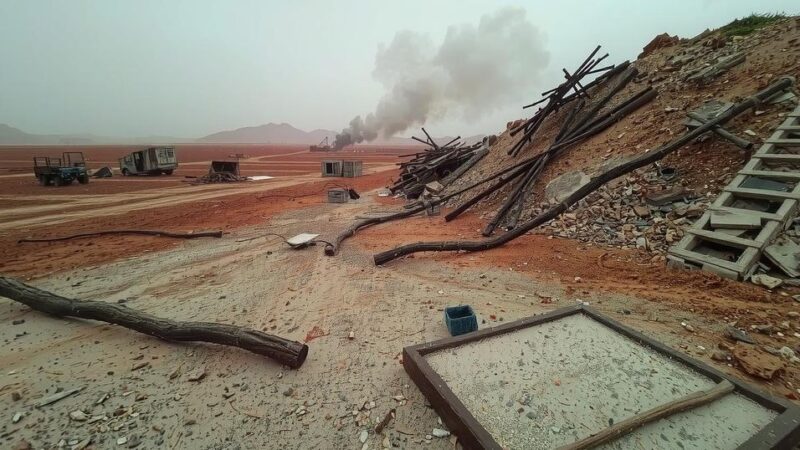Israel conducted extensive airstrikes on Hezbollah’s headquarters in Beirut, targeting leader Hassan Nasrallah, and reportedly killing key militants. The strikes caused significant destruction, killing 92 people and injuring others in Lebanon within a day, with the total death toll exceeding 700 since Monday. Prime Minister Netanyahu rejected calls for a ceasefire, emphasizing continued operations until complete victory is achieved.
The Israeli military executed extensive airstrikes on Hezbollah’s headquarters in Beirut late Friday, resulting in powerful explosions aimed at the militant group’s leader and demolishing numerous high-rise residential buildings. Israeli media outlets reported that the strikes targeted Hezbollah chief Hassan Nasrallah; however, an Iranian government source indicated that efforts were underway to locate Nasrallah. This bombardment, described as the most intense in the Lebanese capital within the past year, followed Israeli Prime Minister Binyamin Netanyahu’s address to the United Nations General Assembly, during which he reaffirmed Israel’s intent to continue operations against Hezbollah until its goals are achieved. The National News Agency of Lebanon reported a total of eleven airstrikes carried out in southern Beirut throughout the night. The Israeli army claimed responsibility for targeting individuals closely connected to Hezbollah, including the commander of Hezbollah’s missile unit and several other leaders, resulting in their deaths. As a consequence of these hostilities, hundreds of families have fled from affected neighborhoods, with many seeking refuge on beaches or in the city’s center. Lebanon’s Health Ministry reported that approximately 92 individuals have died and 153 others injured as a result of Israeli airstrikes in the country in the recent 24-hour period, bringing the cumulative death toll in Lebanon since the onset of bombardments on Monday to over 700. In his speech to the UN, Prime Minister Netanyahu cautioned Iran against potential retaliation, stating, “If you strike us, we will strike you.” The Israeli government has declined a proposal from international partners for a 21-day ceasefire in Lebanon, expressing its commitment to continue the offensive against Hezbollah militants until an unequivocal victory is achieved. The White House expressed its frustration with Israel’s rejection of the ceasefire plan, which it noted required considerable diplomacy.
The ongoing conflict between Israel and Hezbollah has escalated significantly over the past weeks, marked by heavy military engagements and extensive airstrikes. The backdrop of these hostilities includes longstanding tensions between Israel and Iran-backed Hezbollah, with both parties engaging in aggressive military actions and public threats. Israeli officials assert that their operations aim to weaken Hezbollah’s military capabilities, while Hezbollah positions itself as a significant regional player with support from Iran. The humanitarian consequences of this escalation have been severe, particularly for civilians in Lebanon.
In conclusion, Israel’s recent airstrikes on Hezbollah’s headquarters have escalated the ongoing conflict, leading to substantial destruction and significant civilian casualties in Lebanon. The targeted operations in Beirut and surrounding areas underscore Israel’s commitment to neutralizing perceived threats from Hezbollah, with prominent military leaders reportedly among the casualties. Despite international calls for a ceasefire, Israel remains steadfast in its military strategy, emphasizing deterrence and retaliatory measures against Iran if necessary.
Original Source: www.france24.com







